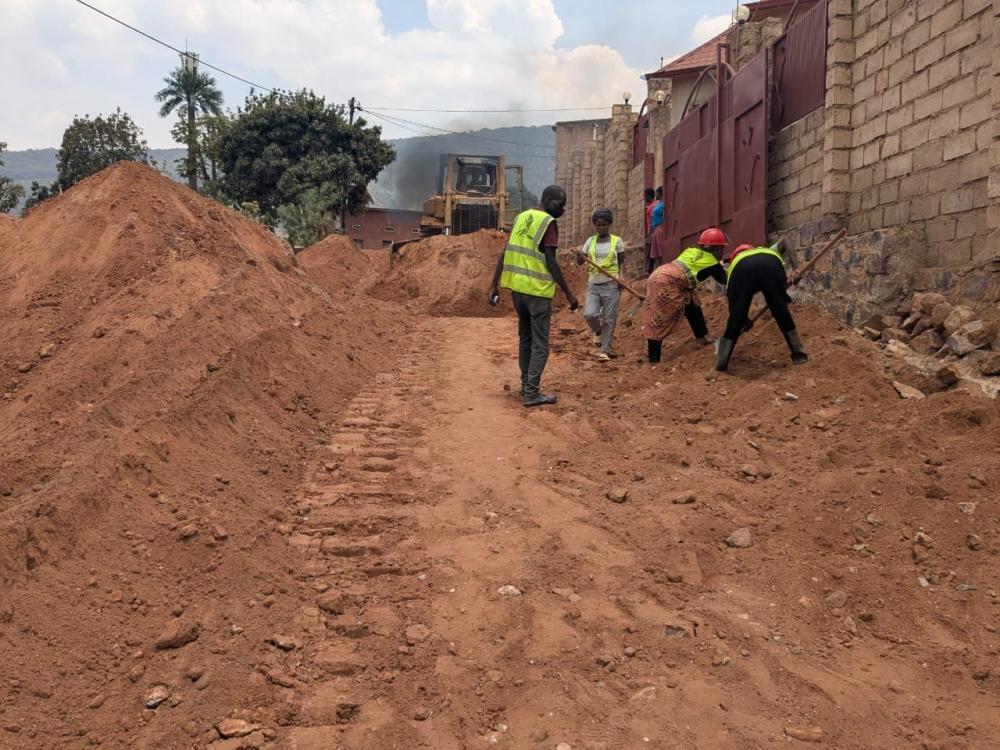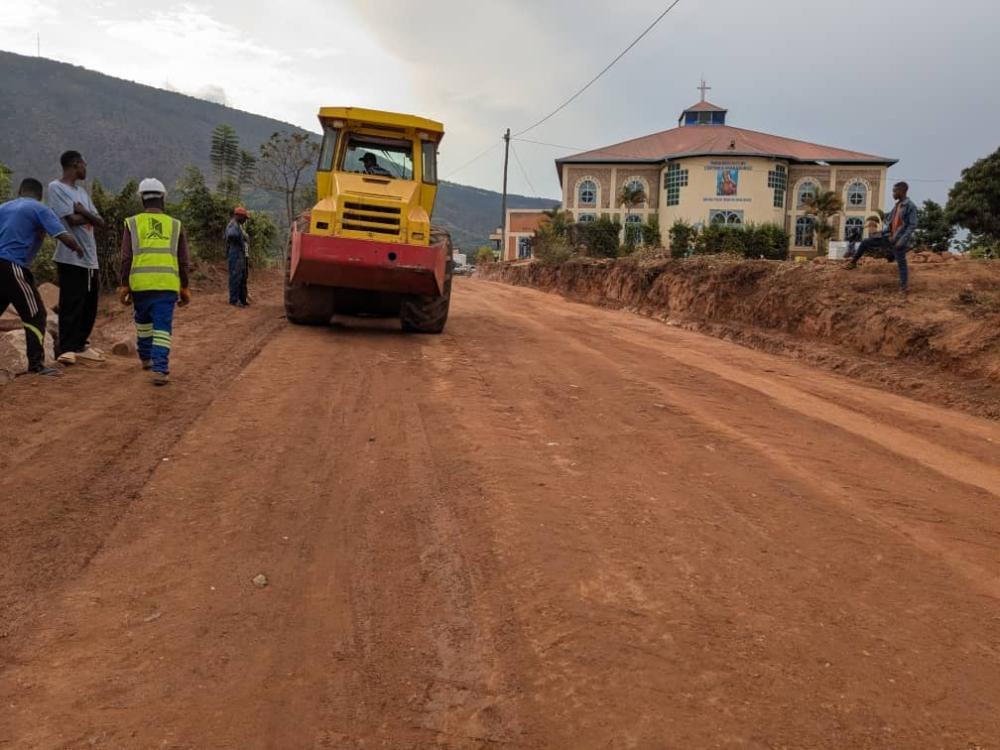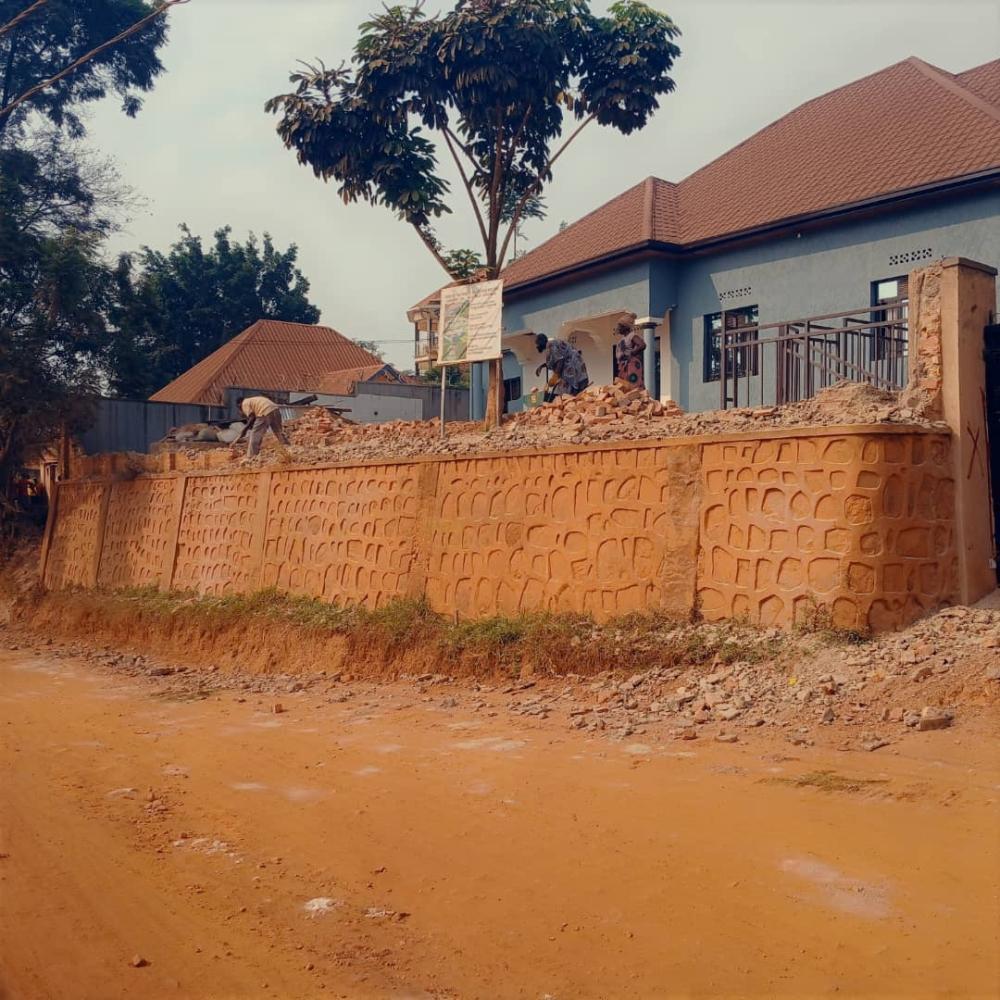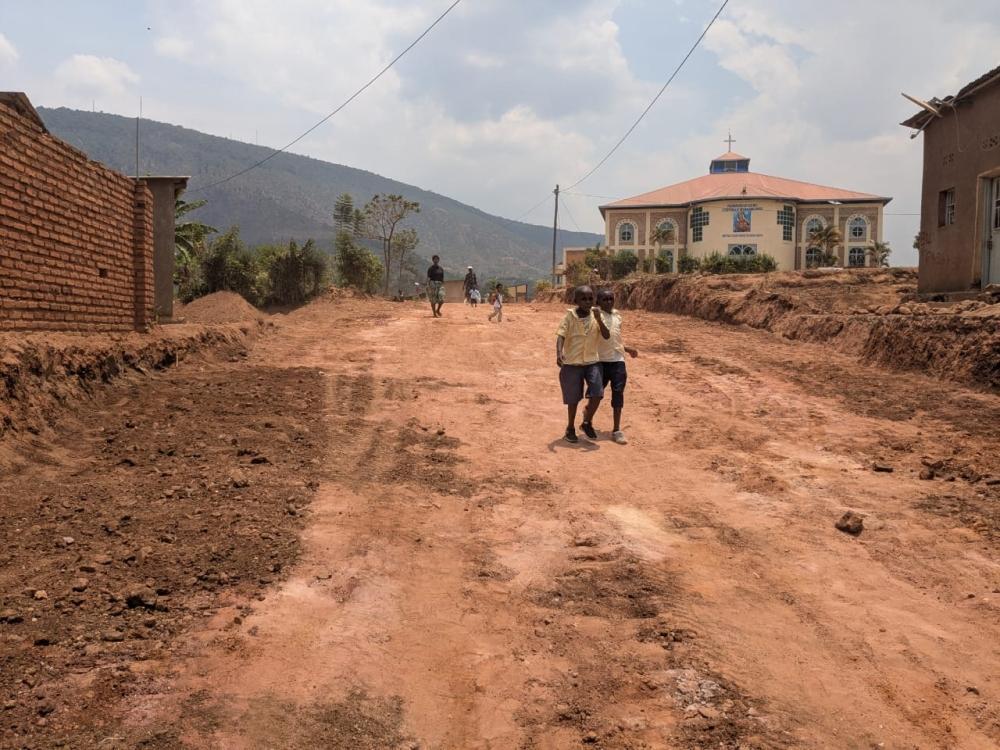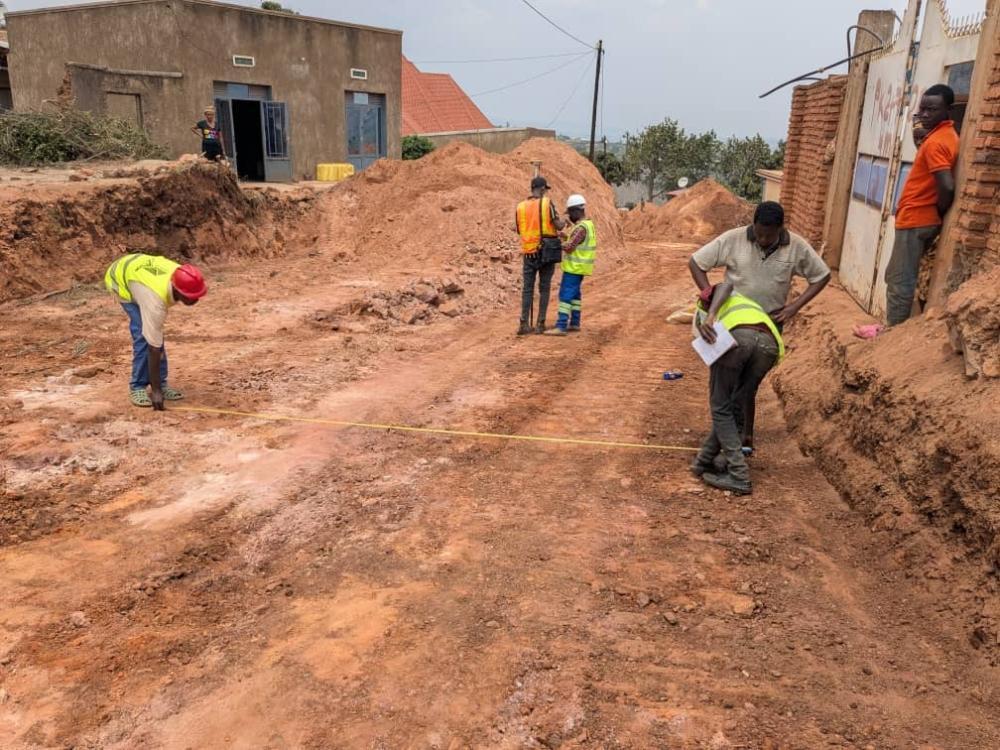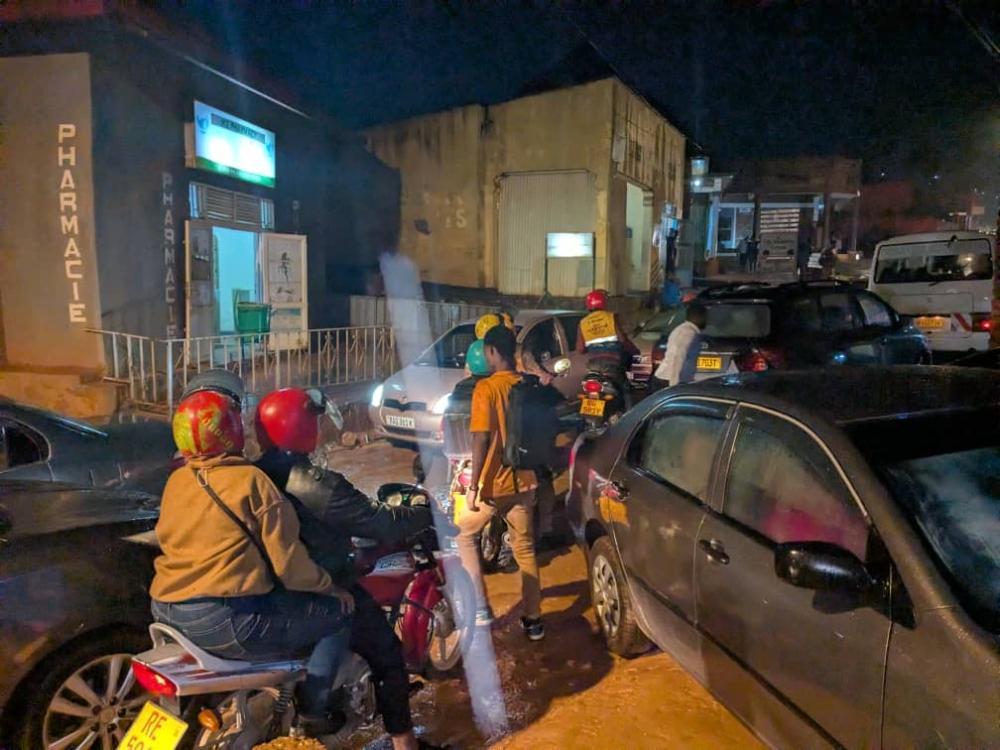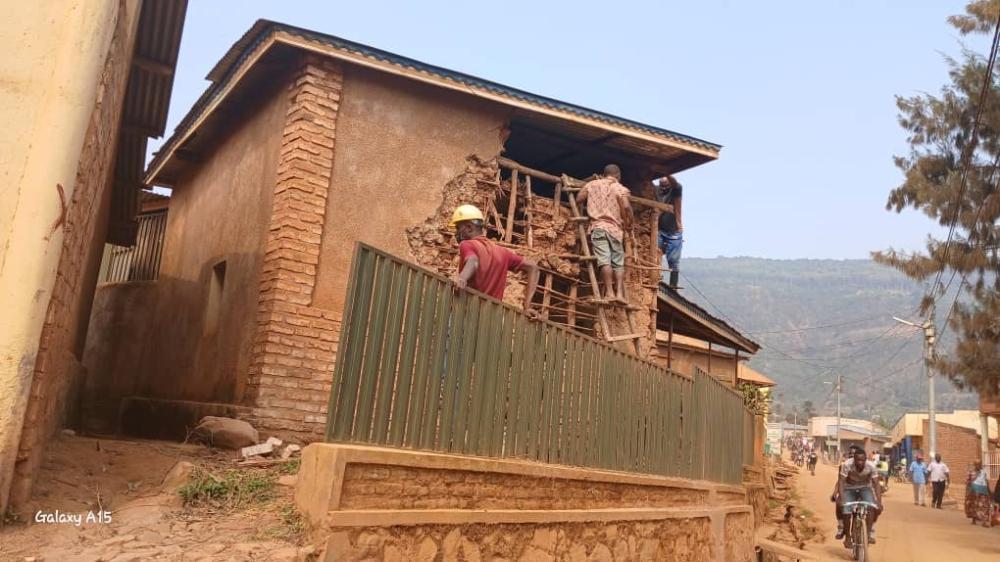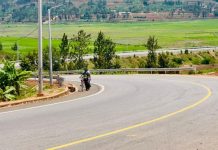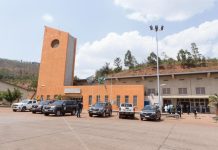Africa-Press – Rwanda. Transport and the movement of people and goods in parts of Kigali are set to improve as community members pool funds to upgrade neighbourhood roads that have long been in poor condition.
Elie Ntakirutimana, a resident of Jali Sector in Gasabo District, took the initiative to mobilise other community members to upgrade a 4.3 km neighbourhood road using their own funds instead of waiting for the city’s budget.
The ongoing works to rehabilitate the narrow road in Jali Sector.
Currently, Ntakirutimana, who is the president of the community development committee in Jali Sector, said the road upgrade could cost more than Rwf2 billion.
“We have a community-led project to construct a tarmac road. The area currently has a very narrow and unpaved road, less than three metres wide. Settlement sites were demarcated in the area, triggering the need for improved roads,” he said.
The road connects to other urban centres such as Karuruma.
“We initiated a community-led tarmac road project because the existing road was too narrow and unpaved. The area’s population is growing rapidly, and with many residents owning vehicles, we could not wait for the city’s budget,” he said.
The road will benefit two cells – Nyakabungo and Agateko – comprising seven villages. He said 25 people initially contributed funds to hire an expert for the road design.
In order to pave way for the revamping works, some properties have been removed.
“Over 3,000 households have committed to contribute towards road rehabilitation. About Rwf2 billion is needed. At least 48 houses worth Rwf134 million were removed to pave the way for road expansion after discussions with landowners,” he said.
Building flood resilience
“The road sits at the foot of Jali Hill, where flooding frequently caused damage. We used to spend Rwf20–30 million annually on minor repairs,” Ntakirutimana explained. “We decided to mobilise larger contributions for a lasting solution.” Ntakirutimana said.
The road is being expanded with funds from residents in Jali sector
The road includes two large bridges and several smaller ones.
“The road should be nine metres wide, with pedestrian walkways and water channels,” he noted.
The first phase of the road, from Karuruma centre to Nyakabungo centre, spans 2.2 km and will cost Rwf1.07 billion, he added.
“So far, Rwf80 million has been mobilised directly from residents. Laterite and stones secured from the neighbourhoods are valued at Rwf40 million, in addition to the Rwf80 million already raised from dwellers,” he said.
He added that residents with engineering skills are also contributing by supervising the road construction, saving the Rwf60 million that would have been spent on hiring external supervisors.
“In total, the value of contributions so far exceeds Rwf420 million,” he added.
Theoneste Musirikare, one of the landowners whose house was removed to make way for the road, said:“There was a huge traffic jam due to the narrow road. The initiators who mobilised us to contribute to the road upgrade did a great job. Having a paved road will improve both private and public transport. The road was almost impassable during the rainy season.”
Marie Uwamahoro, another resident, said the idea to upgrade the road was initiated by a few community members who are now mobilising others to contribute.
“Every citizen commits to a certain amount. For example, one person even donated Rwf20 million. Others contribute Rwf1 million, Rwf2 million, Rwf3 million, and so on. A citizen can contribute any amount depending on their capacity,” she said.
Initially, the residents raised Rwf30 million for minor upgrades using laterite. However, this was not a sustainable solution, as rain would erode the road since it was not paved.
Kigali targets 100km of neighbourhood roads by 2029
The City of Kigali plans to construct 100 kilometres of paved neighbourhood roads by 2029, aiming to improve mobility within the urban area.
This target implies that approximately 25 kilometres will be constructed each year, with four years remaining in the plan.
“This means that people who contributed funds will be served,” said City Mayor Samuel Dusengiyumva referring to residents who have financially supported the neighbourhood roads initiative.
The neighbourhood road project comprises smaller access roads that connect residential areas to the city’s main road network.
According to city officials, the initiative is designed to support communities willing to co-finance road construction, with the city providing a 50 per cent subsidy—down from the previous 70 per cent.
Under this scheme, citizens contribute 30 per cent of the cost, while the government previously covered the remaining 70 per cent before revising this contribution percentage.
The road upgrading has commmenced
However, the project faces challenges due to the City’s limited capacity to meet the numerous requests for road construction.
Serge Nshimiyimana, vice chairperson of Kamutwa Cell in Kacyiru Sector, Gasabo District, said that citizens in one of their villages pooled resources and are now seeking financial support from the City of Kigali to help build a road in their area.
“Residents in our village pooled resources and we now have Rwf93 million,” he said, adding that they are awaiting the City’s contribution.
The City of Kigali stated that it is completing the pilot phase of 15 kilometres, after which it will continue collaborating with communities on neighbourhood road construction.
Under the 2025/2026 fiscal year budget, which begins on 1 July, more than Rwf1 billion has been allocated to this community-driven road project, which follows a cost-sharing model between residents and the City of Kigali.
Dusengiyumva emphasised the city’s goal of ensuring that all areas with approved physical plans are eventually served by asphalt roads.
Vehicles stranded on the narrow road caused a traffic jam.
Workers demolish some properties to pave way for road upgrading
For More News And Analysis About Rwanda Follow Africa-Press

